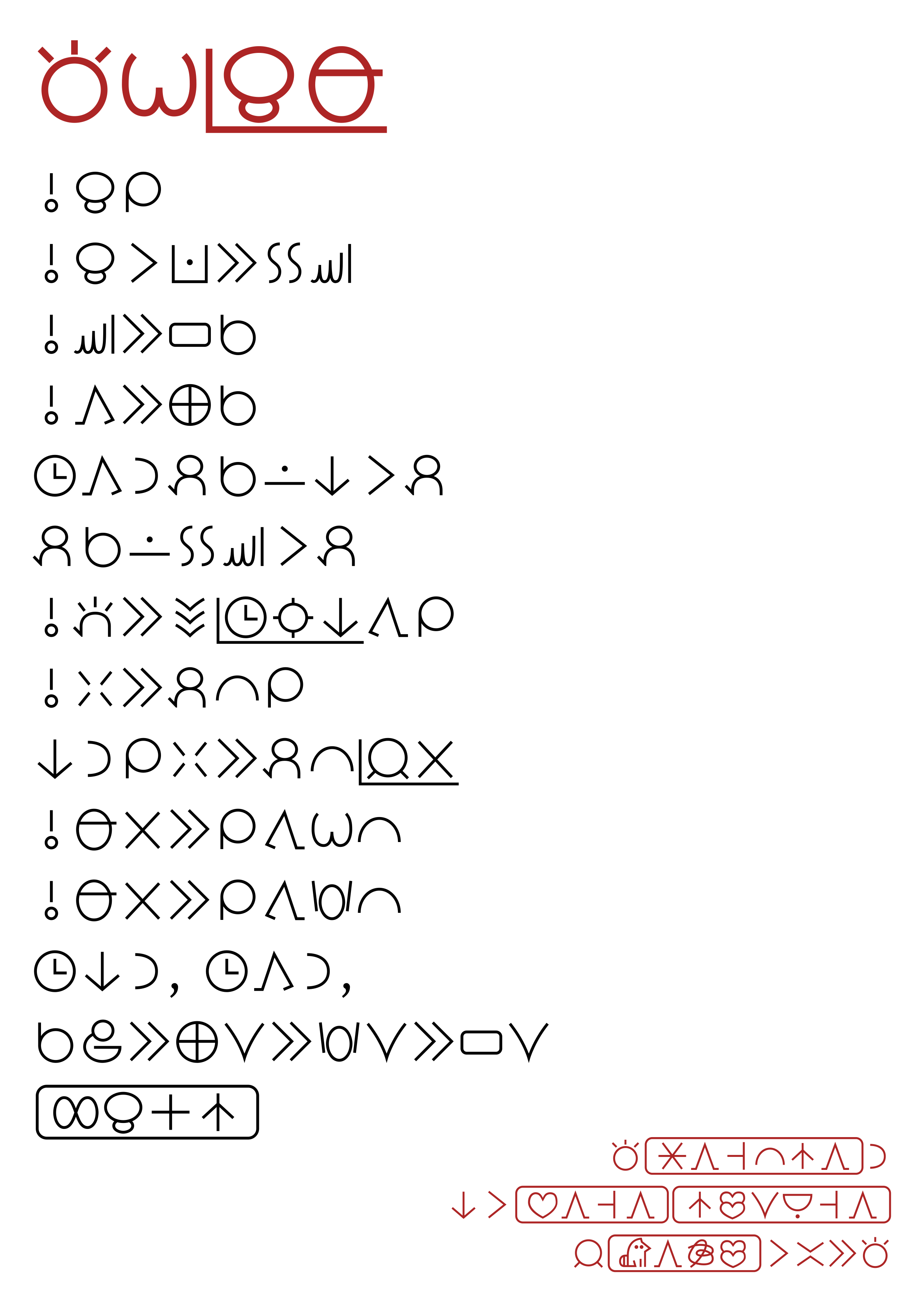toki wile pi mama lawa (Lord's Prayer)
February 14, 2024
A little bit of context: toki Pona is a philosophical artistic constructed language created by Sonja Lang known for its small vocabulary, simplicity, and ease of acquisition.
toki wile pi mama lawa stands for “Lord’s Prayer”: literally, “speech of wants relating to the parent-leader”. I’m not Christian, but I chose the Lord’s Prayer for my first translation project because it is short, sweet, and kind of tricky. Furthermore, it is widely translated, so having a version in toki pona never hurts. Here is the “original” version: The Lord’s Prayer (Πάτερ ἡμῶν/Pater Noster, for the nerds) is originally written in Greek. This version is the oldest of the best known English translations, from the 1662 Book of Common Prayer.
Our Father, which art in heaven,
Hallowed be thy Name;
Thy kingdom come;
Thy will be done
in earth, as it is in heaven:
Give us this day our daily bread;
And forgive us our trespasses,
as we forgive them that trespass against us;
And lead us not into temptation,
But deliver us from evil;
For thine is the kingdom,
the power, and the glory,
For ever and ever.
Amen.
linja pona is probably the best sitelen pona font out there. Here is my translation in glorious sitelen pona, rendered using linja pona by jan Same.
Red text on the bottom: “toki Latina la ni li Pata Nosuta. jan Kajo li ante e toki” (In Latin this is Pater Noster. The person Kajo translated.)

The following are short translations of the toki pona text. The second lines for each block translate each individual word in the sentence, and the third lines are most probable interpretations by the average toki pona user. IMP: imperative marker; 1P: first person pronoun; 2P: second person pronoun; VERB: verb marker; OBJ: direct object marker; CONTEXT: context marker; LOC: location marker; REBRACKET: re-brackets adjectives after the marker
o mama mi
IMP parent 1P
Our parent/father
o mama li insa e kon sewi
IMP parent VERB inside OBJ air above
Parent/father who is inside heaven
o sewi e nimi sina
IMP rise OBJ name 2P
Glorify your name
o kama e ma sina
IMP come OBJ land 2P
Bring your kingdom
tenpo kama la pali sina lon ni li pali
time come CONTEXT deed 2P LOC here VERB do
In the future, your job will be done here
pali sina lon kon sewi li pali
deed 2P LOC air above VERB do
[Like how] your job in heaven are done
o pana e pan pi tenpo suno ni tawa mi
IMP give OBJ bread(wheat-based food) REBRACKET time sun here go 1P
Give today’s bread to us
o weka e pali ike mi
IMP make-disappear OBJ deed bad 1P
Forgive our bad-doings
ni la mi weka e pali ike pi jan ala
this CONTEXT 1P make-disappear OBJ bad REBRACKET person different
In this context, we forgive the bad-doings of other people
o lawa ala e mi tawa wile ike
IMP lead not OBJ 1P go want bad
Do not lead us toward bad desires
o lawa ala e mi tawa wawa ike
IMP lead not OBJ 1P go power bad
Do not lead us toward bad powers
tenpo ni la, tenpo kama la,
time this CONTEXT, time come CONTEXT,
Now, and in the future,
sina jo e ma suli e wawa suli e nimi suli
2P have OBJ land big OBJ power big OBJ name big
you [always] have the important kingdom, the important power, and the important recognition.
Amen
Amen tokiponized is still Amen.
It was pretty challenging, because expressing logic in toki pona is pretty hard as only 3 conjunctions are available. A lot of the more complex ideas are possible by community consensus, for example, tenpo suno ni (time, sun, now) being “today”. However, I’m starting to see that poetic language is pretty easy in toki pona. Because sentence structures are simple and shallow, parallel structures can almost be achieved without intentionally doing so.
mi tawa!